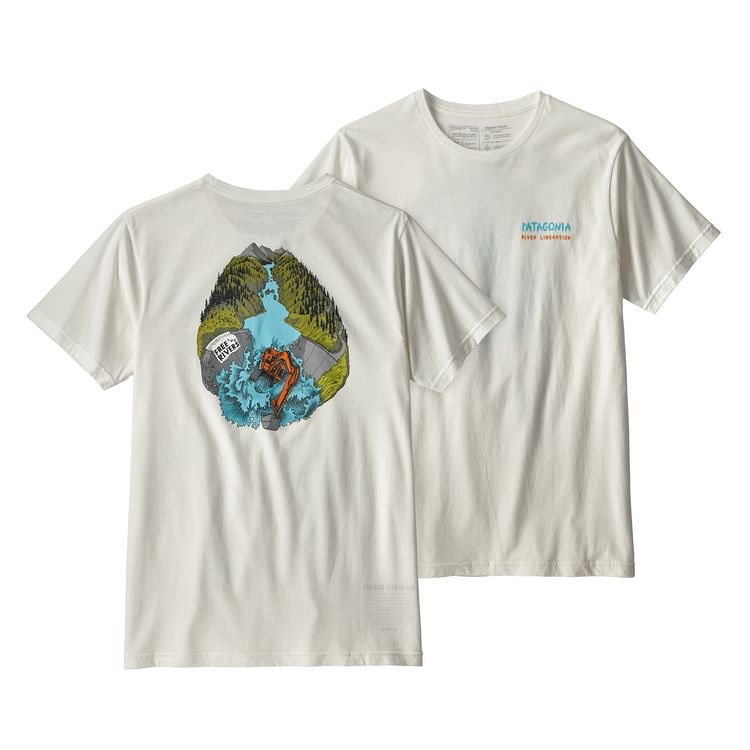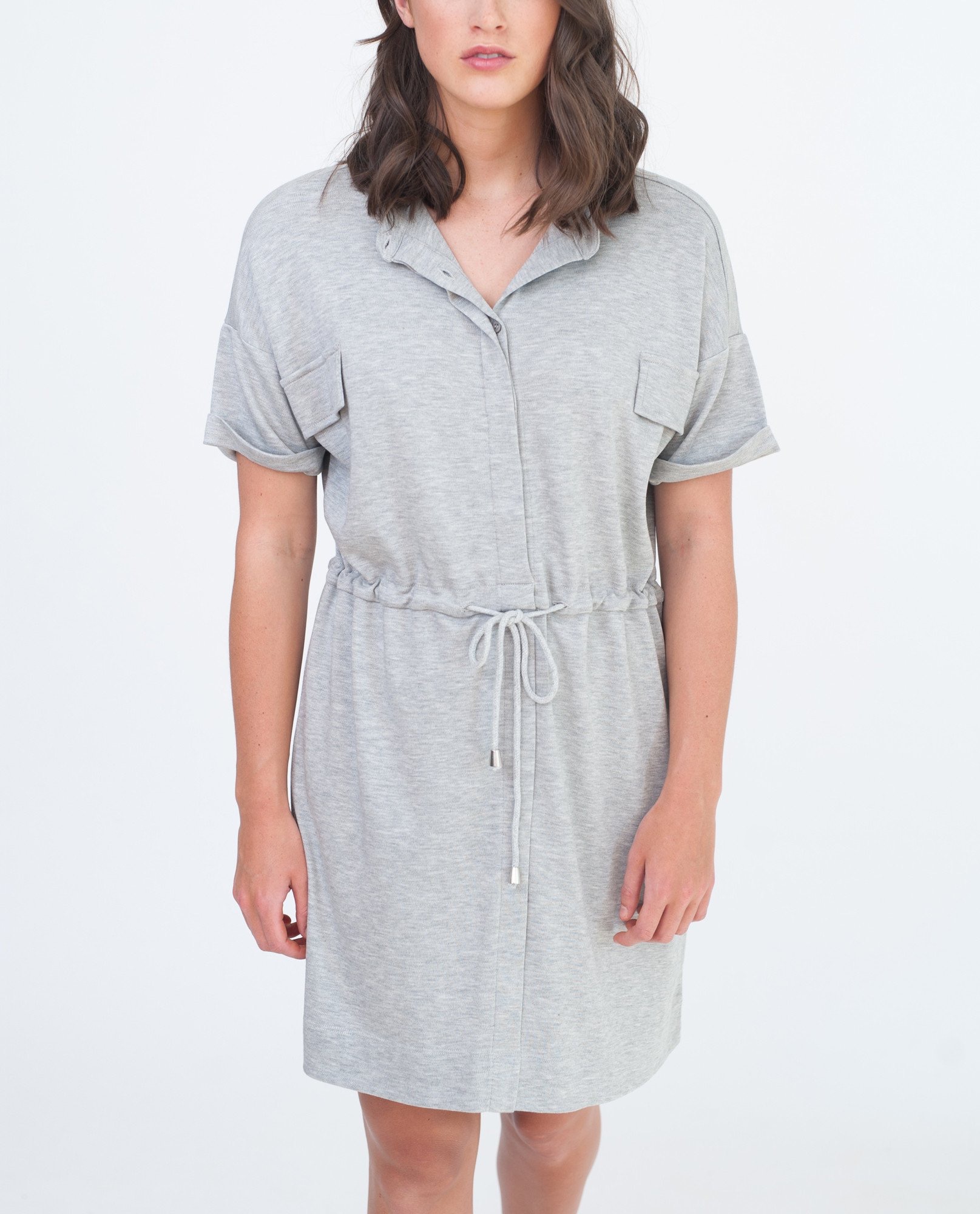The January sales have hit and with it my New Year’s resolution not to buy any more clothes has taken a beating.
At the start of the year I made a commitment not to be so wasteful after seeing one too many reports on the severity of the climate change threat.
But with temptation all around, holding on to my particular resolve to buy less clothes is being sorely tested, especially for a secret shopaholic like me.
So my question is: if I do shop, how can shop sustainably and who are the most environmentally friendly brands to buy from?
Remind me, why do I have to be careful?
Did you hear how microplastic fibres in clothes are poisoning our oceans? On average, synthetic fleece jackets release 1.7 grams of microfibers each wash. Up to 40% of them go on to enter rivers, lakes and oceans where they have the potential to poison the food chain.
Unfortunately buying clothes that have been made by recycled plastic, like Patagonia and Polartec do, could be worse than doing nothing at all.
So what type of material should I avoid?
Understanding the types you should avoid is easy: they’re largely man-made synthetic fabrics, such as polyester, acrylic, nylon, rayon, acetate, spandex, latex, Orlon and Kevlar.
But understanding the scale of how prevalent these fabrics are is quite surprising.
Take that shirt on your back. There’s a 50/50 chance it’s made from cotton, which when made conventionally, can take 20,000 litres of water to produce one single t-shirt or a pair of jeans. If you didn’t already know, wasting water is bad for the environment.
It also involves the use of synthetic fertilisers and toxic pesticides that can poison wildlife and rivers and kill an estimated 16,000 people a year. Not to mention the questionable ethics and humanity issues involved in the majority of cotton production.

30 second guide to sustainable fabrics
Understanding the true sustainability value of apparent eco-friendly fabrics can be confusing and, quite frankly, requires a Phd.
But in a nutshell, look out for the stamp of approval from the Soil Association, the UK’s certification body, Global Organic Textile Standard (GOTS), or Oeko-Tex, which checks processes for harmful chemicals.
Nothing can beat organic cotton’s benefits for ‘people and planet’, according to The Soil Association.
Other sustainable fabrics are organic wool, bamboo lyocell (TENCEL), recycled cashmere, hemp, denim and recycled polyester (rPET).
Chemicals such as azo-dyes and fluorocarbons in waterproof clothing are also cut out of many sustainable brands, because they can cause skin irritation and damage the environment.
For a more comprehensive understanding of the so-called sustainability value of certain fabrics, read to the bottom of this page.
A selection of the more sustainable brands
Unfortunately many of the more affordable brands do not use 100% organic or sustainable fabrics, but some are making an effort in the right direction. Here’s a pick and mix of the brands doing it a bit better than the rest.
Hauled over the coals for its ethical practices in 2015, Patagonia remains one of the most respected outdoor brands. It tackled consumer culture head on with its ‘Don’t Buy This Jacket’ ad in New York Times. With its Worn Wear programme, which restores the brand’s pieces to good as new, it is discouraging customers from buying more. It also uses sustainable fabrics in its range including Yulex natural rubber in their wetsuits, which apparently reduces C02 emissions by up to 80% in the manufacturing process.

The Cornish-based brand known for its iconic bretons, easy-to-wear tunics and practical clothes uses organic cotton from several different countries and back in 2005, they were the first fashion company ever to gain Soil Association certification for its products.

A look around their website is like being joyfully smacked with a colour gun. These people know how to create a cool corduroy dress responsibly.

This Manchester-born brand’s garments are made from organic, fair-trade and eco-friendly fabrics, with most incorporating GOTS-certified cotton. The brand specialises in produces comfy casual dresses, slouchy sweaters and tees.

Relaxed, pretty outfits to more luxurious garments are a staple of People Tree. Emma Watson once collaborated with them. If you buy from here, you can be reassured that they are made from environmentally friendly fabrics like organic cotton and wood-pulped Tencel.

The London-based company, formerly known as Braintree Clothing is made from natural, recycled and organic fabrics and make outfits for men and women. They use azo-free dyes too.

Sustainable clothing for those with slightly deeper pockets
If you’re a surfer worth his or her salt, you’ll know this brand. They don’t just have an effortlessly cool look, they have a heart for the planet too. Not surprising given much of their free time is spent in the sea, so ocean plastics are always ‘front of mind’. Their range contains organic cotton t-shirts and jackets with recycled polyester insultant. They aimed to eradicate single-use plastic from their supply chain by the end of 2018.

When Meghan Markle wore a pair of the Harriet jean in 2018, the brand sold out in hours. The company pride themselves on their ethical values not just their investment in organic cotton and recycled packaging. Founder James Bartle started it to offer female victims of human trafficking a sustainable career path as a seamstress.
The brands that need to work harder despite steps in the right direction
The Swedish brand guarantees that 59% of the cotton it sources is ‘sustainably sourced’ in its Conscious range. By that it means either organic cotton, recycled or cotton sourced through its Better Cotton initiative. It hopes to make all of its clothing sustainable by 2030, but this feels like a long time away and the brand’s sustainable plan has room for improvement.

This high-street stalwart and favourite of Mums all over talks a big talk in its Plan A manifesto. But surprisingly appears to aim low when it claims that by 2025 it wants to have increased the proportion of Fairtrade, organic and recycled sources to just 25%. It claims it aims to source 100% of cotton from ‘more sustainable sources’ by April this year. In good news though, the brand says its raised £21M for people living in extreme poverty through its Shwopping recycling scheme with Oxfam.

The brand were voted ‘not good enough’ by Good On You website in 2018. However, according to their website they have invested in what it calls ‘sustainable cotton’ since 2017. That’s investing in educating farmers in India and Pakistan how to grow and produce cotton with less fertilisers and pesticides. The garments in this range are mainly in pyjamas (one in three pyjamas in the UK are bought in Primark apparently). Just be careful and look out for the Primark Cares label when rooting through those hangers.

So if I buy more organic or sustainable fabrics can I have a guilt-free shopping fix?
Simply put: no. There’s no silver bullet for shopping sustainably without leaving some imprint on this planet.
We need to change our relentless throw-away consumer culture for good if we are to make a real difference, or simply, mend more, buy less and buy better.
One final thought I’ll end on it’s that producing clothes is entirely dependent on a healthy planet.
More than 90% of cotton growers live in countries that often lack the infrastructure, preparedness and political will to respond to climate change challenges.
So it’s the least we can do to be a bit more mindful when we shop, if you still want the world at your feet and the shirt on your back in years to come.
One last tip
If you want to know about which brands are better for the environment, try the Good On You app. It gives you the ethical low-down in the palm of your hand.
A deeper look at the more sustainable fabrics to look for
According to The Soil Association nothing can beat organic cotton’s benefits for ‘people and planet’. Organic fibres are grown without the use of synthetic fertilisers, toxic pesticides, genetic modification and uses less water then the non-organic process. It’s more ethical for the workers too.
Other sustainable fabrics are organic wool, although it depends who you speak to. Wool is a byproduct of the meat industry, so some campaigners will always support a boycott. However it’s natural, hardy and potentially biodegradable so has greater eco-credentials.
Bamboo can be highly sustainable if grown in the right way, but most bamboo fabrics are a form of rayon where the manufacturing process is highly intensive and involves harmful chemicals. The slightly more sustainable version of bamboo fabric is bamboo lyocell (TENCEL)
Brands increasingly make garments from eco-friendly fabrics, such as Tencel, made from wood pulp. Recycled cashmere, hemp, denim and recycled polyester (PET) also tick sustainable boxes.

Great blog! Really interested in this subject. Can’t wait to read more!!
LikeLike
A fascinating, informative read. So much I was not aware of. Thankyou!
LikeLike